Sensory Processing Disorder – Noticing Something is different
So you are worried that your child isn’t quite the same as others – either their peers or their siblings. May be you are having difficulties with them for simple day to day things like washing or brushing their hair, or teeth, cutting their nails, putting on their clothes or not sleeping. Maybe they have issues with food. Or it could be that they are not learning as much as they should. They could be taking risks or unable to sit still.
Whatever it is about your child it has led you to ask yourself whether there is `something’ – and if that something is Sensory Processing Disorder.
Sensory Processing Disorder – in the beginning for us
I first knew there was something different about our son when he was 2 years old. To me he was obviously Autistic. He had always had issues with sleeping, he was falling behind his peers, had quirks (like standing on his head/spinning), and covering himself in things (like paint). When we were referred to the Pediatrician one of the things she mentioned was about Sensory Processing Disorder.
I had never heard of it. It was to do with how he was rubbing her tights. I later notice how he touched people a lot. She referred him to an Occupational therapist. We were advised to read The Out of Sync child – for which I nodded my way through. By the time we went to a meeting about how to cope with Sensory Processing (or should I say how to help your child learn to cope with it) I already had so many things in place for him. You need to learn about what areas affect your child – if they are under-responsive, over-responsive – or if they change from one to the other.
What is Sensory Processing Disorder?
We make sense of the World around us through our senses. We process so much information – about the sounds, smells, textures, our position, what we can hear, how much we are moving, and so on, and then the brain filters out which bits of information we need right now. They then tell us how to respond appropriately. For example if we take a sip of coffee that is too hot, the senses will tell us not to drink it, to move the cup away from us – what position our body is in, in order to do this. We develop preferences for things, as some sensory input works better for some rather than others. For example, some people may work better listening to music, and others prefer the quiet. Sometimes this can be harder than others, and can depend on your mood. For example, you may find it harder to ignore that annoying sound when you are trying to concentrate on something difficult, and when you are particularly tired.
Sensory Processing Disorder – The Seven Senses
Those with Sensory Processing Disorder have difficulty with the brain filtering out the bits it does not need from the seven senses. Click each of the below to find out more about each sense:
The Auditory Sense (Hearing),
The Visual Sense (vision/seeing),
Proprioception (Sense of body position, from information received through the muscles, and joints – force, speed and control).
Vestibular Sense – Movement and Balance/Gravity
Tactile (touch)
Interoceptive (covering temperature)
Gustatory (taste)
Olfactory (smell)
What to Do if You Suspect Your Child has Sensory Processing Disorder
The first thing to do when you suspect Sensory Processing Disorder is to keep a diary. Read about ways that a child may be affected, and if it applies to your child. Discover ways in which you can help them. Keep track of when things are good, and when things are not so good.
Consider whether the sense may be experiencing too much of something or not enough. What things help to diffuse the situation and what things help in maintaining a happy balance? Make sure you think about the times of day – does it always happen in the mornings? Does it only happen after they’ve been energetic?
Areas that Sensory Processing Can Affect
Sensory Processing Disorder can affect many aspects of life including hygiene, sleeping, diet, relationships, self-esteem, danger, health, and education. Sensory Processing Disorder never goes away but it can be managed by a good Sensory diet. The earlier it is detected the better. There are many different Sensory Aids available to help as well as coping strategies.
Those with Sensory Processing Disorder may be known as Seekers or Avoiders – depending on whether they get not enough or too much stimulation. This can alter for each area of the senses, and it can vary from experience to experience. Just because my son (predominantly a Seeker) wants a lot of touch most of the time does not mean that he always needs more stimulation. In fact he is always touching people but often is easily irritated if someone touches him (especially hugs in the early days).
Also read:
Is Your Child a Sensory Seeker?
Sensory Processing Disorder in the UK
Common Difficulties and Ways to Help
Please if you are concerned seek professional help. This information is no way a replacement of that. I am just a mother sharing her experiences.
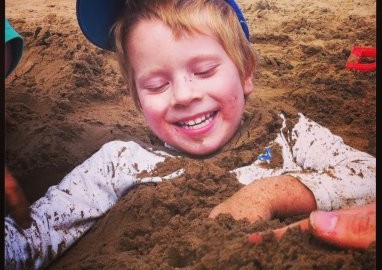
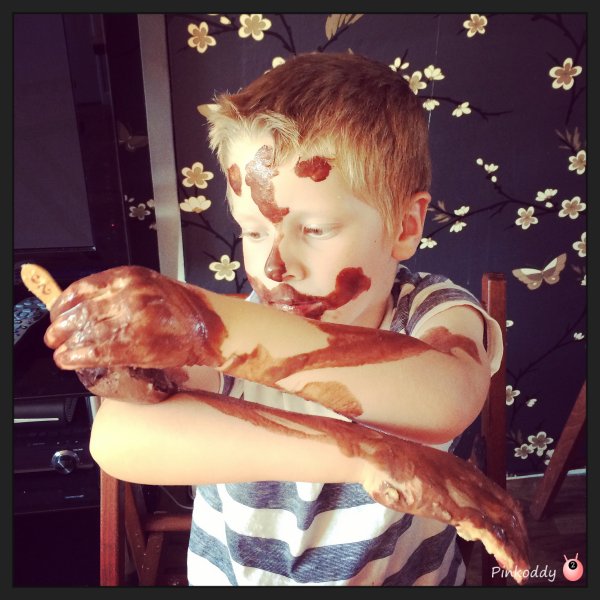
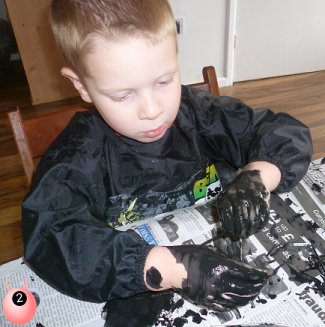
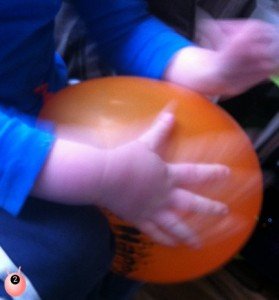
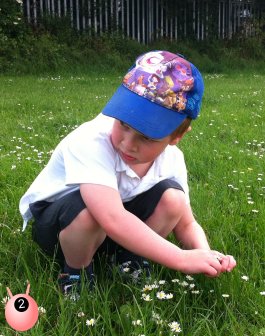
Hi, thankyou for sharing this article. I know my son has sensory issues but trying to find support for them is so hard. I will read the book that you have mentioned.
I’ve had no help or support what so ever when I’ve turned to health proffessionals with concerns about my son regarding his sensory issues. It seems as anything related to this is just swept under the carpet.
It’s so much more than just having a fussy child. It’s exhausting and draining for us as parents imagine how it must feel for our little ones.
Hi my daughter has difficulties with washing hands, sticky hands, washing hair, cleaning teeth, applying suncream, loud noises, feeling of socks and shoes,certain clothing, she has just been to paedrictian appointment and said she does not have autism, she can walk in straight line. And has full body function. She licks inappropriate things such as stones, poles, sand but won’t eat certain foods. Light does not seem to be a problem either
Thank you for this article. I first had concerns with my son at 18 months when he suddenly stopped talking. He had Pica which I was told he would grow out of, but when he stopped talking my first thought was autism. We have had lots of support through various paediatricians, Education Psychologist, Speech and Language, Portage and Clinical Psychologist. A report did come back to say after various assessments he wasn’t autistic so the paediatrician applied for funding for an occupational therapist to review him and to receive therapy. Thankfully the grant was successful and after 3 hours of observing him, the OT said he had SPD and it ended up going back to when he was a baby and not taking a bottle or food. He was also given a
1 to 1 in nursery after two weeks due to his no fear, pulling children’s hair to eat and behavioural issues. Looking forward to the sessions so I know how to help him best.
Sorry for not getting back to you all earlier. I hope you are being supported. If there is any ever any area that I may be able to help with just do let me know in the comments. I am not an expert just have a son who is doing so remarkably well now.
My son aged 10 has had most of the symptoms described on this web site. I have been told time and time again by family, friends and education professionals that he is not normal. He has had assessments by senco, educational psycologists, GPs and dieticians, but not one has been able to help. Finally we moved him to a specialist school and they have raised the possibility of him having sensory perception issues. My son seems to slip through the NHS and state systems because he does not have autism or ADHD. I am due to see the GP and fear that I will not get the paediatric referral I need. Should I even mention SPD, as their seems to be little or no recognition within the NHS? I could not find any guidance on the NICE web site either. Does anybody have any suggestions?
I have looked at some research articles and there appears to be research conducted by the US. I found one article that had found biological grounds for SPD through MRI scans. This showed a deficiency in the brains white matter. The cause for this was unknown, but they did suggest a hereditary link.
I finally feel that this could be the cause of my sons issues, and that it was never behavioural. I hope now that his problems can be recognised and treated so that he can reach his full potential and have a happier life, without being ostracised by others.
Hi Claire – sorry you have had no help so far. Yes here in the UK it is not diagnosed but doesn’t mean you cannot access help. You may still get an EHCP and claim disability living allowance (as well as accessing other charity help). I have found the Out of Sync child to be invaluable and The Sensory Seeker has come on leaps and bounds since we got to know more about what he needs in his day (his sensory diet).
I know it is no great help but at least the special school seem to be taking things seriously – you could mention that they have raised sensory issues when you go to see the GP. Have they ruled out autism? As I accessed most of the help when having an assessment to see whether he is autistic (they decided that he wasn’t). As I say I am just a mother and only one of my children has sensory processing disorder but if I can help in any way I will. Is there anything in particular that you feel would benefit addressing? For us it was definitely sleep we needed to start with.
Many thanks for replying so quickly. I will definitely read the Out of Sync Child. Luckily the new school have been really supportive. I think my son compensates very well, and has had to through the years. His problems have mostly been around diet, education and socialising. At home we have accepted many of the difficulties and are able to support him. But as time goes on, and we enter the teen years, he will need to be able to manage things himself. So I will see if I can get a paediatric referral.
Great website. It is really helpful to know we are not alone. Many thanks again for your support.
Just sorry to hear that you haven’t had the support so far. My oldest son was 10 before he got an Asperger’s Diagnosis and is now at University, has a drivers licence and even had a job for a little while.
Hopefully the new school will help with diet (at lunchtimes), education and socialising – fingers crossed it is a corner for you.
Hello,
very helpful blog.
was wondering if you could suggest where I could obtain the assessment and diagnosis for the disorder. my daughter was diagnosed by a doctor abroad but here GP does not see anything to refer my daughter for further investigation.
any private clinics or advised on how to overcome this NHS system..
A great article and the site is a tremendous resource overall. We have seen very good results with the Wilbarger therapy brush for tactile issues in our son. Initially we brushed him with it and now he plays / fidgets with it and it has a soothing effect. The OT we work with recommend we try it and since then we’ve got one in most rooms in case he needs it at any time of the day…
I wonder if my step daughter has sensory processing disorder but her symptoms are not exactly as described and she has been in the care system so has various issues.
things I have noticed are as follows and have been an issue since I have known her (age 6.) As she is a care leaver and not still in the system, finding help/ diagnosis is an ongoing battle.
– Will put her hands under extremely hot water without reacting
– Will not wash her body or hair
– Will not brush her teeth
– gets angry if someone asks her to wash
– Will not brush her hair
– Does not seem to understand personal space
– Rolls around on the floor when playing with younger siblings, Jumps around and is quite rough despite the age difference
– Cannot process information / simple instructions
I am also curious to know if sensory processing disorder can manifest in self-harm (obsessive picking or spots and scars?)
I think you are right in that it could possibly be sensory processing disorder but you will struggle to get any kind of diagnosis (not that we actually have those in the UK) until any underlying trauma is ruled out.
sorry I am late responding but did you look at other posts on here – like the teeth brushing one to see if the suggestions help?
Hi, my son has Down Syndrome and recently diagnosed with ASD too. Our NHS OT says his sensory demands are down to his cognitive level and having DS – I disagree… I have read the Out of Sync Child book and trying to do my research but finding it hard to find others with DS/ASD and sensory processing issues. My son is 6 and totally non verbal – he is a twin and his sister is typically developing (don’t know why i felt the need to share that, but i have :)). Any direction you can give as to how i get the NHS OT to give us and school structured sensory guidance, would be most welcomed.
I am sorry to hear that they haven’t been very helpful to you. Personally I think it shouldn’t matter whether it is due to DS or not – it is more about identifying the sensory triggers and what sort of things can help. I do feel your frustration at them saying it is just due to the DS but SPD isn’t diagnosable here anyway.
Do you know http://www.downssideup.com/ – Hayley knows a lot more people in the DS community and so may be better to help you.